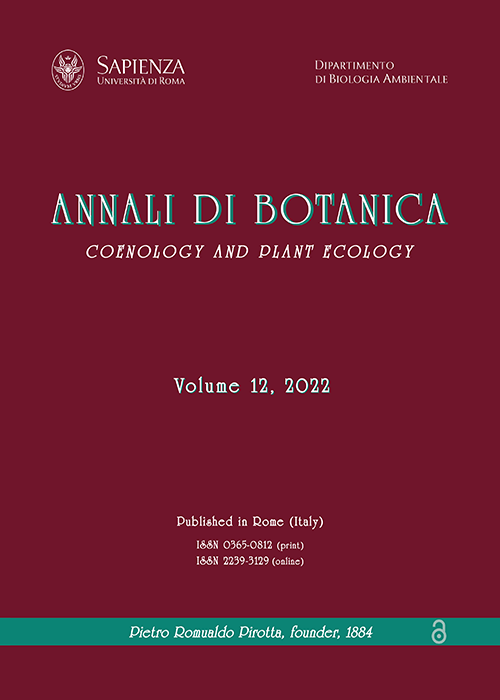EVALUATION OF METALS AND METALLOIDS IN WHEAT (TRITICUM AESTIVUM L.) UNDER APPLICATION OF ZEOLITE AND COMPOSTED COW MANURE
DOI:
https://doi.org/10.13133/2239-3129/17534Keywords:
soil pollution, food safety, wheat, zeolite.Abstract
Today, large parts of the world are exposed to heavy metal pollution. The highest contamination with heavy metals is found in industrial areas, around large cities and mines. This experiment was carried out in order to evaluate uptake and accumulation of metals and metalloids in wheat (Triticum aestivum L.) under zeolite and composted cow manure application. The experimental design was factorial according to a completely randomized design with three replications. To contaminate the soil metals and metalloids included lead, nickel and arsenic were mixed with the soil. In this experiment, four different amounts of zeolite and composted cow manure include (zero) (control), 0.5, 1 and 1.5 percent of the soil weight were investigated in soil contaminated. The concentration of lead, nickel, and arsenic were determined in different parts of the plant including root, stem and grain at final harvest stage. Results showed that the effect of zeolite, compost and interaction between zeolite and compost on concentration of lead, nickel and arsenic in root, stem and grain were significant. The maximum and minimum accumulation of lead, nickel and arsenic under application and non-application of treatments were in root and grain, respectively. In general, in the contaminated soils, application of zeolite and compost by 1.5% is effective in reducing the contamination below the standards level of food. So it can increase food safety and food security.
Downloads
Published
How to Cite
Issue
Section
License
Copyright (c) 2022 Seyed Keyvan Marashi

This work is licensed under a Creative Commons Attribution-NonCommercial-ShareAlike 4.0 International License.
The copyright for articles in this journal are retained by the author(s), with first publication rights granted to the journal, articles are free to use with proper attribution in educational and other non-commercial setting.

